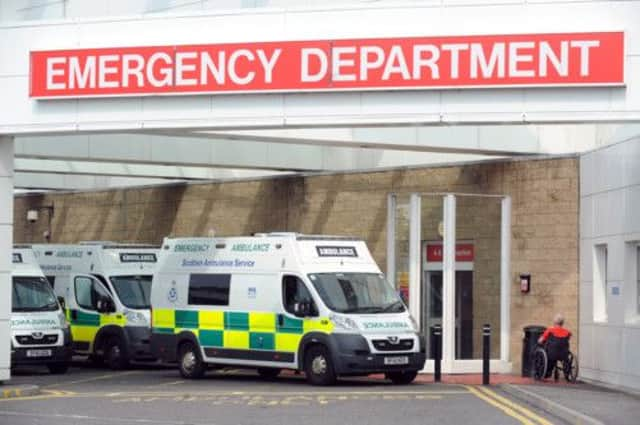Third of 999 calls not answered within ten seconds


A target to pick up 90 per cent of 999 calls to the Scottish Ambulance Service within that time was missed every month in 2012-13. Officials said the target, introduced last year, had now been hit, following work to improve performance.
But opposition politicians expressed concern that it had been missed “so spectacularly” for a whole year, while health campaigners said delays in answering calls could cost lives.
Advertisement
Hide AdAdvertisement
Hide AdAmbulance service board papers revealed that in the last financial year 66.6 per cent of 999 calls were answered within the ten-second target.
Performance was worst in May last year, when calls answered within the time frame dropped to 61.2 per cent. The closest it came to hitting the 90 per cent mark was in November at 73 per cent.
The report pointed out that 999 calls had increased by 1.7 per cent, which could partly explain failure to hit the target.
It said changes to shift patterns at its control centre and other measures, such as redirecting calls to other answering centres at busy times, were leading to a month-on-month improvement in call answering times.
But the Scottish Conservatives expressed concern about the effect on patients. Jackson Carlaw, the party’s health spokesman and deputy leader, said: “There are few things less reassuring when a person is in desperate need than the sound of a phone ringing out.
“If we are to get ambulances to the scene of emergencies as quickly as possible, it’s essential these calls are picked up almost as soon as they are made.
“The target of 90 per cent is there for a reason, and it’s bitterly disappointing it has been missed so spectacularly.
“The Scottish Government must give the ambulance service all the support it needs to make this target happen consistently and give people who are in emergency situations confidence that their call for help will be dealt with swiftly.”
Advertisement
Hide AdAdvertisement
Hide AdMargaret Watt, chair of the Scotland Patients Association, said it was good if performance against the target had increased recently compared to the figures for the last year. But she added: “It should be 100 per cent. That 30 per cent could cost somebody’s life.”
Ms Watt said that during her career as a BT telephonist, which involved picking up emergency calls, those being directed to ambulance services were picked up almost instantly – a vital point.
“If it is an emergency, an accident, and someone’s life is at risk, that person is getting stressed out until their call is actually answered,” she added.
A spokesman for the Scottish Ambulance Service said: “Call handling performance has steadily improved and is now on target at 90.4 per cent.
“This is the result of a strategy to enhance Ambulance Control Centres, with an investment of £1.3 million in new technology, additional management and analytical support, as well as a realignment of shift patterns.”
But the papers showed some targets were still being missed.
A target to reach 75 per cent of life-threatening calls within eight minutes fell just short at 74.7 per cent in 2012-13 – up from 73 per cent the previous year. And a target to respond to 91 per cent of urgent calls from GPs within an hour stood at 87.9 per cent, up from 86.3 per cent.
A spokeswoman for the Scottish Government said: “We recognise that delivering any new target can be challenging and we have welcomed the service’s open communication with us and the public on their progress to achieving it.”